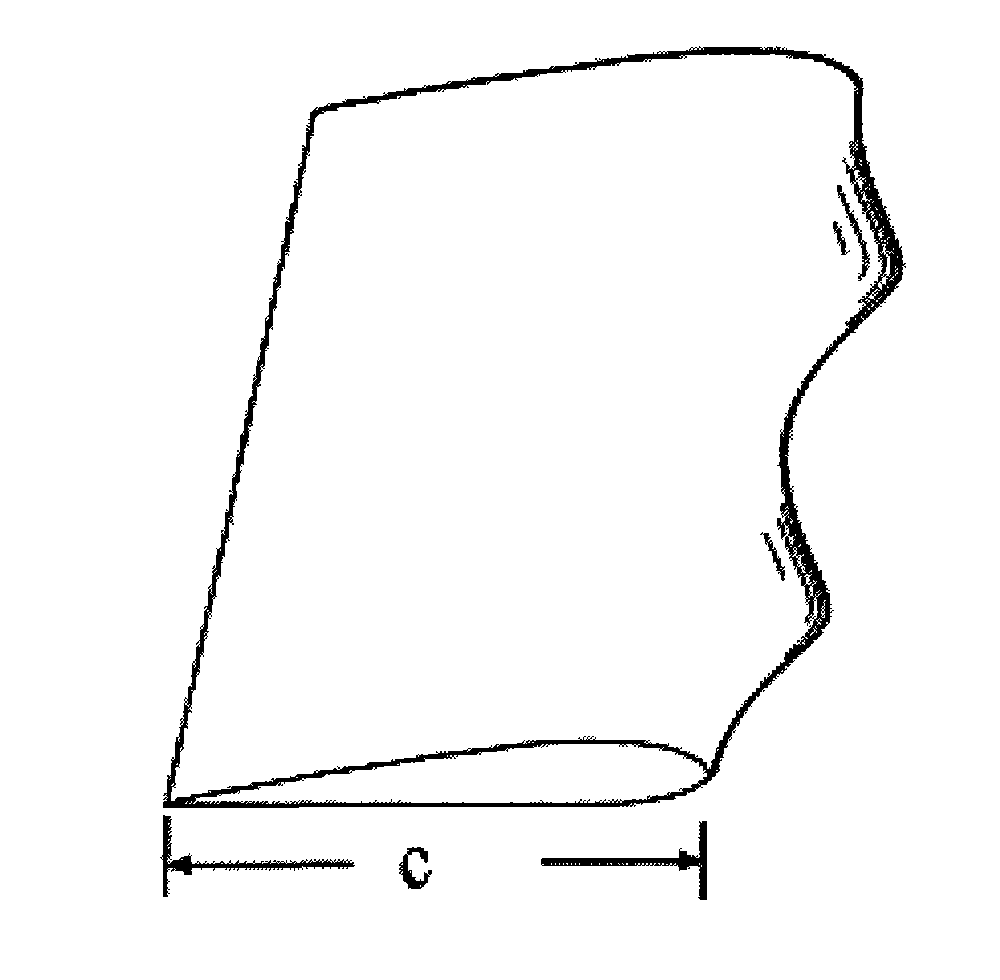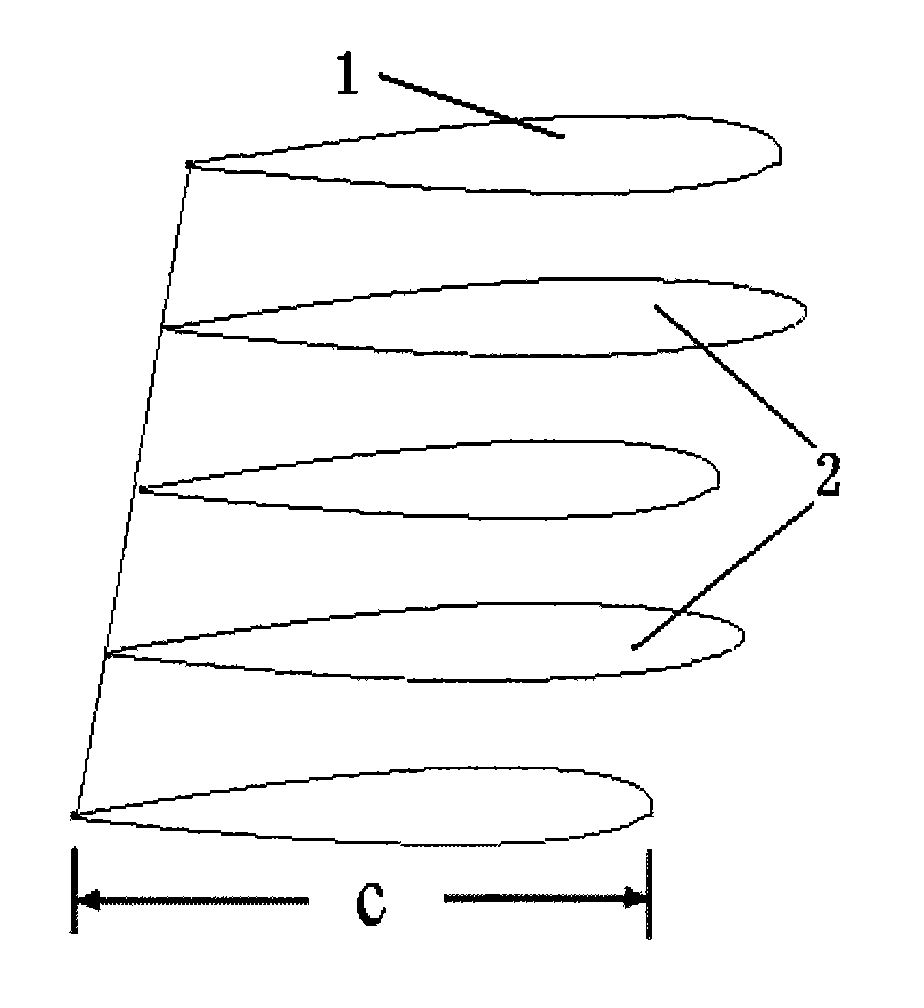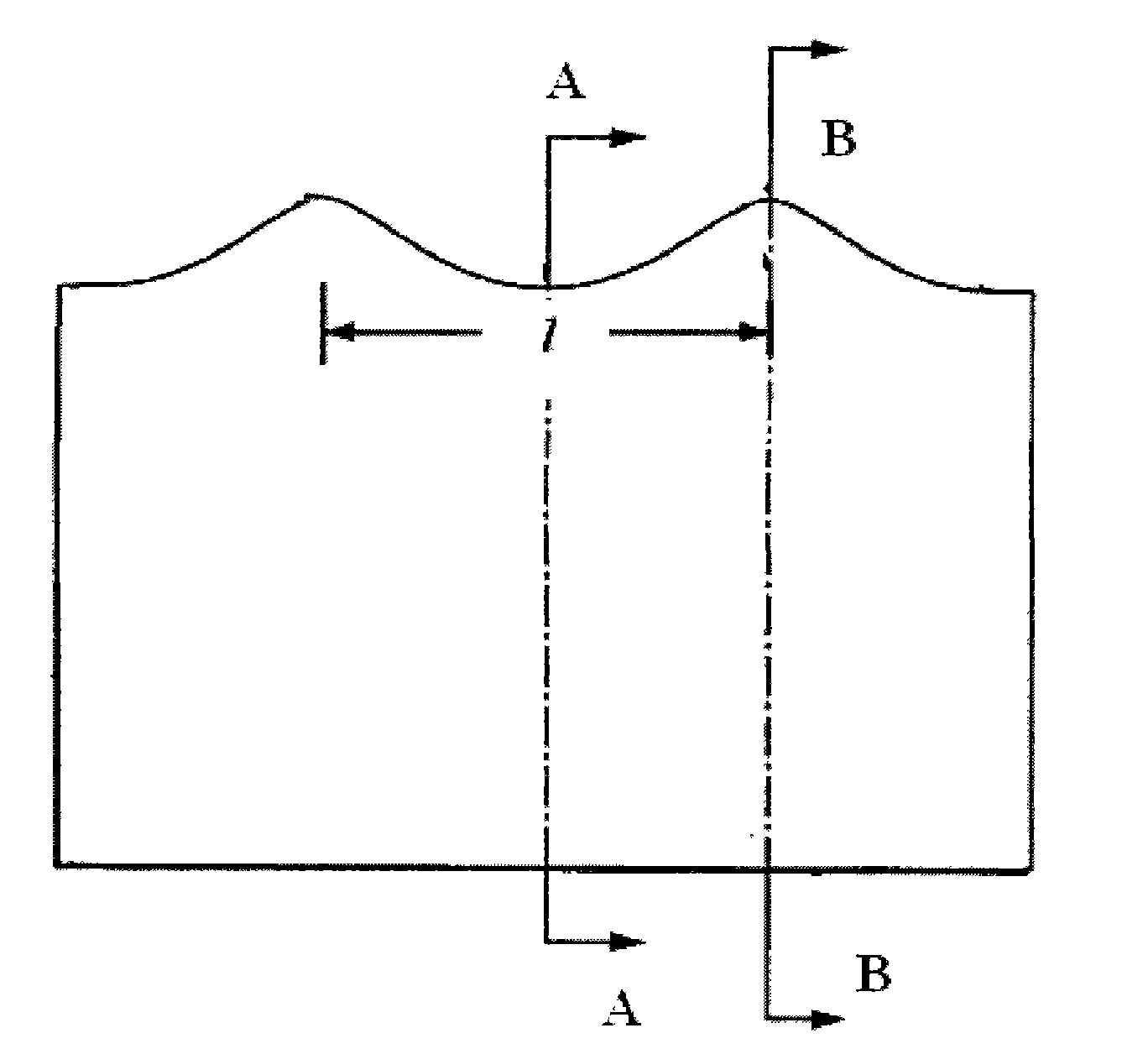Bionic coupling blade of aerogenerator
A technology for wind turbines and blades, which is applied to wind turbine components, wind turbines, wind power generation, etc., can solve the problem of reducing the structural safety of the blades and the stability of their functions, affecting the direction of the blade jet, and affecting the performance of the wind turbine. and other problems, to achieve the effect of reducing instability, reducing area, and weakening the intensity of turbulent bursts
- Summary
- Abstract
- Description
- Claims
- Application Information
AI Technical Summary
Problems solved by technology
Method used
Image
Examples
Embodiment 1
[0024] Referring to Figures 1 and 2, taking NACA 0018 (NACA: (USA) National Aviation Advisory Committee) airfoil as an example, at Reynolds number Re=2.5×10 5 , (Re=VC / v, where V: incoming flow velocity, C: chord length, v: fluid kinematic viscosity) the surface of the bionic coupling structure at the leading edge of the blade spread, the distance from the trough to the trailing edge is defined as the airfoil The basic chord length C, the distance from the peak to the trailing edge is 1.025 times the basic chord length C of the airfoil; the distance wavelength l from the trough to the trough (peak to peak) is 0.25 times the basic chord length C of the airfoil; there is a bionic coupling leading edge (Figure 1) has a 3.7% increase in lift and a 6.1% decrease in drag compared to a smoother leading edge (Figure 2).
Embodiment 2
[0026] Referring to Figures 1 and 2, taking NACA 0018 as an example, at Re=2.5×10 5 , the surface of the bionic coupling structure at the leading edge of the blade span, the distance from the trough to the trailing edge is set as the basic chord length C of the airfoil, and the distance from the peak to the trailing edge is 1.025 times the basic chord length C of the airfoil; the trough to the trough The distance wavelength l (peak to peak) is 1.0 times of the basic chord length C of the airfoil; the lift force of the bionic coupling leading edge (Fig. 1) is 5.3% higher than that of the leading edge smooth (Fig. 2), and the drag is reduced by 8.9%. .
Embodiment 3
[0028] Referring to Figures 1 and 2, taking NACA 0018 as an example, at Re=2.5×10 5 , the surface of the bionic coupling structure at the leading edge of the blade span, the distance from the trough to the trailing edge is set as the basic chord length C of the airfoil, and the distance from the wave crest to the trailing edge is 1.2 times the basic chord length C of the airfoil; The distance wavelength l (from peak to peak) is 0.25 times of the basic chord length C of the airfoil; the lift with bionic coupling leading edge (Fig. 1) is 10.1% higher than the smooth leading edge (Fig. 2), and the drag is reduced by 13.7%. .
PUM
 Login to View More
Login to View More Abstract
Description
Claims
Application Information
 Login to View More
Login to View More - R&D
- Intellectual Property
- Life Sciences
- Materials
- Tech Scout
- Unparalleled Data Quality
- Higher Quality Content
- 60% Fewer Hallucinations
Browse by: Latest US Patents, China's latest patents, Technical Efficacy Thesaurus, Application Domain, Technology Topic, Popular Technical Reports.
© 2025 PatSnap. All rights reserved.Legal|Privacy policy|Modern Slavery Act Transparency Statement|Sitemap|About US| Contact US: help@patsnap.com



